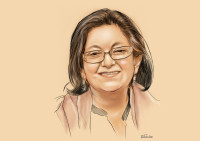Brunch with the Post
Manushi Yami Bhattarai: There’s a lot of hypocrisy in Nepali society
The Samajbadi Party Nepal leader speaks on her own terms about the MeToo movement that she’s championed, youth leaders in Nepal, and being the daughter of Baburam and Hisila.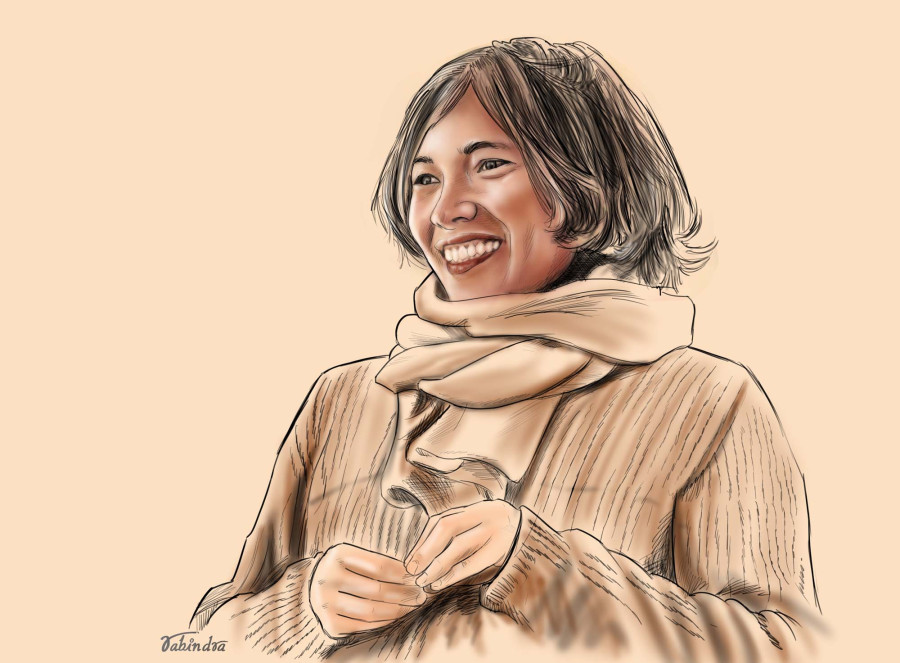
Pranaya SJB Rana
There is a firestorm brewing when I meet with Manushi Yami Bhattarai at Pulchowk’s Mitran da Dhaba. Surrounded by kitschy joke moustaches in a decidedly un-dhaba-like setting, we discuss the unfolding saga of Krishna Bahadur Mahara, who has just been accused of rape by a woman who works for the Parliament Secretariat.
News had just broken the night before about the woman’s allegations of rape and Mahara had yet to step down. The story was developing fast and by the time we’d end our conversation, Mahara would’ve stepped down as Speaker of the House. By the end of the week, there would be a retraction from the woman and then a reaffirmation of her allegations via a formal police complaint. As Dashain holidays began, Mahara would be taken into custody, the first high-profile individual to be investigated for rape allegations as part of the ongoing #MeToo movement that’s taken the world by storm.
Bhattarai has been a vocal proponent of the MeToo movement, expressing support on social media and also working with Tribhuvan University, her alma mater, to build an anti-sexual harassment mechanism, especially in the wake of allegations of sexual misconduct and harassment at the hands of Krishna Bahadur Bhattachan, a senior lecturer at the university.
So naturally, we begin by talking about Mahara and the social media reaction to the allegations against him. I point out that the response I’ve seen has largely been in support of the woman and a fair investigation, with fewer people taking Mahara’s side. This is in stark contrast to the reception that other similar allegations have received, like with Keshav Sthapit, Bhattachan or within Kathmandu’s theatre community.
“It has a lot to do with visibility,” says Bhattarai. “Others who were accused had a smaller circle, but people from across the country know Mahara.”
But it is also about the MeToo movement, she elaborates. It’s been over a year that the movement came to Nepal and although not much has changed for the perpetrators, there is growing awareness.
Mahara has stepped down as Speaker and been taken into custody for investigation, but nothing remotely similar happened with Bhattachan, who still gets invited as an honoured guest to events around the country.
“I had asked politically affiliated student unions to take up the issue but I was shocked that none of the unions or current students or faculty did,” says Bhattarai. “That’s when we ex-students stepped in to bring faculty and students together. The rector had promised to form a special committee to look into sexual harassment complaints. The committee has since been formed and they have a three-month consultation mandate.”
Given that Bhattachan was accused of sexual harassment by two former students, wasn’t it strange that the student unions didn’t take up the matter, I ask.
“The student unions also do seasonal politics,” Bhattarai replies. “If it’s election season then everything becomes a sensitive issue. Some student leaders even told me that the women weren’t even current students so how would raising this issue help them in the election.”
It’s not just student leaders who’ve failed to support the women speaking out about harassment. Notably absent have been Nepal’s leading progressive liberal voices. While these intellectuals, who are writers, poets, columnists and political analysts, never seem to miss an opportunity to pontificate on myriad issues, they’ve largely been missing from the MeToo conversation.
“There’s a lot of double standards and hypocrisy in Nepali society, especially with those who talk about liberal values and portray themselves as progressives,” says Bhattarai. “It’s not just men but women also. They have a list of things they can be progressive about and other uncomfortable things where they would rather not speak. It has a lot to do with social capital and networks, and the networks that form the fastest tend to be that of men.”
How then can we move forward? In the US and in India, the MeToo movement has resulted in legal trials and serious consequences for the men involved. In Nepal, little has happened, and there is a fear that Mahara too will get away with a slap on the wrist.
“That’s the important thing—how to move forward,” says Bhattarai. “We have to build mechanisms and make more people aware of what sexual harassment is and how to minimise it. The onus is not on a bunch of women who have to get together and decide what needs to be done. Those in power need to take this up and address it on a broader scale.”
But has Bhattarai’s own party built mechanisms to prevent harassment? Yes, she says.
“We had raised this issue multiple times within Naya Shakti, before the merger with Samajbadi Forum. After the merger, we’ve held discussions a few times with the leadership. We’re working on building a separate committee to handle gender issues but the party leaders have insisted to also include caste. We’re trying to institute this issue structurally. Since the committee hasn’t been formed yet, we’ll have to keep reminding the leadership,” she says.
Given Bhattarai’s activism on this issue, I am inclined to believe that she has pursued it structurally within the party. But given also the fact that most political party leaderships still remain the province of men, it is difficult to believe something concrete will come out of it.
Bhattarai is a central committee member and secretary of Province 3 for the Samajbadi Party Nepal, formed after the merger of her father Baburam Bhattarai’s Naya Shakti and Upendra Yadav’s Sanghiya Samajbadi Forum. Naya Shakti itself was formed after Bhattarai split from Pushpa Kamal Dahal’s Maoist party, the same party that Baburam and Dahal had once led jointly to war.
“We left the communist party because we didn’t believe that they would take up any progressive agendas to the extent that they could,” says Bhattarai. “So we decided to do it on our own. Even after this massive two-thirds majority, we were skeptical but hopeful that they would respect the people’s mandate and bring about some changes. But we’ve only seen a kind of boastful pride in the two-thirds majority.”
Bhattarai’s father Baburam has long been vocal about amendments to the 2015 constitution, which was their condition to joining the government, she says.
“After the merger, we had a meeting with the top leadership of the ruling Nepal Communist Party, where we reminded them of their commitment to constitutional amendments, an end to the transitional justice process and to refrain from indulging in political horse-trading,” she says. “So our support for the government is conditional.”
Bhattarai might be the daughter of two established political leaders but she is fairly young, despite the salt-and-pepper hair she’s inherited from her mother, Hisila Yami. Nepal’s political parties have a tendency to call anyone who is not a dotard a “youth leader”. There are politicians in their 40s and 50s who many insist are youth leaders. So I wonder how Bhattarai, who is in her 30s, feels about this brandishing about of the word ‘youth’.
“Everyone wants to talk about youth and young people because this is the group that has the economic, cultural, socio-political capital,” she says. “But in politics, it is not just about your age. How different are you from those who are not young? If there’s no difference then what’s the use of calling yourself a youth leader? If you’re speaking the same language, using the same words as the previous generation then what’s the point of being a youth leader?”
She has especially choice words for ‘new’ parties that have recently arisen, parties that are mostly urban- and youth-oriented, but lack a clear ideology and vision.
“New parties have come up and new faces are joining politics with an innocence that they will change things,” says Bhattarai. “It’s good to talk about changing the political culture but they’re only talking about good governance and corruption and issue-based activism. That’s like painting the wall when there are huge cracks underneath. There are institutional and structural issues that need to be tackled.”
This is the same criticism that many have levelled at the young parties but the old parties aren’t doing any better either. The Nepali Congress, the grand old party of Nepali politics, is in the doldrums after losing miserably to the Communists in the last election. The ruling Nepal Communist Party, on the other hand, appears obsessed with its unprecedented two-thirds majority.
Towards the end of our conversation, I ask Bhattarai the one question she has been expecting this entire time. It is a question that every journalist who interviews her asks and it is one that I cannot afford not to ask, even though I chose to interview Bhattarai on her own terms, and not as the daughter of Baburam and Hisila. Bhattarai was just 11 years old when the ‘people’s war’ started and she was dispatched to India to go to school on her own. She lived 10 years as Astha, a girl from Nepal, constantly moving schools and eventually ending up at Jawaharlal Nehru University, Baburam’s alma mater and a hotbed for leftists in India.
It can’t be easy to be the daughter of Baburam and Hisila, both of whom are relentlessly criticised, no matter what they say. So how exactly does it feel to be their daughter?
“I feel proud,” says Bhattarai. “I’ve gotten a lot of exposure because I am their daughter—exposure to politics, society, and what this world is about. Whatever I learned, I learned because of their belief that I should. But during the 9-10 years that I was underground, I learned that I could do something on my own without their help or support. Much of who I am today is due to my parents, but it is not just because of them.”
ON THE MENU
Mitraan da Dhaba, Pulchowk
Harabhara kebab: Rs 390
Chicken biryani: Rs 700
Butter paneer: Rs 600
Black tea: Rs 60




 9.83°C Kathmandu
9.83°C Kathmandu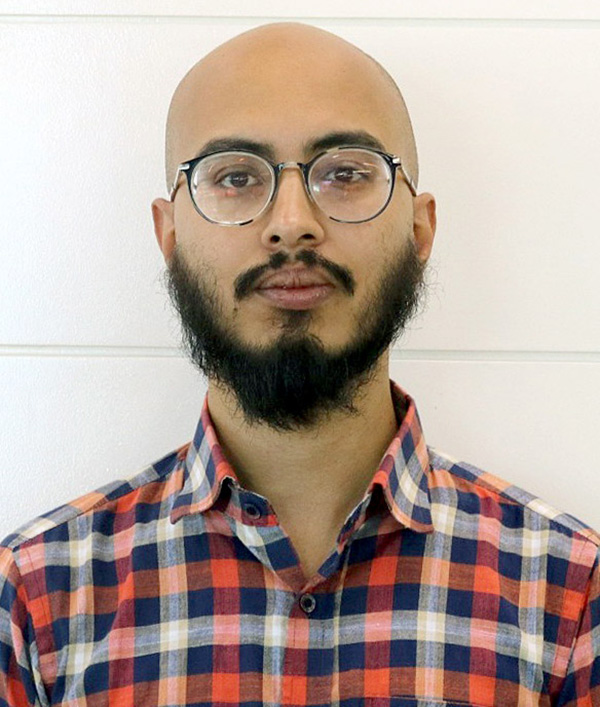
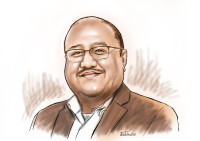

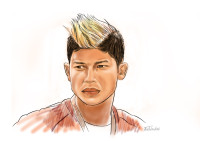
.jpg&w=200&height=120)

